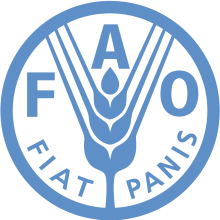Resource information
The continuing and rapid degradation of rural watersheds has been a major concern for governments and civil society in Asia and the Pacific region. A root cause is the segmented management of land and water resources. This has been exacerbated by the cumulative and linked effects of an increase in demand for food, fuel and water due to population growth, competition for scarce land resources from biofuel production and a shift in preference for protein-rich diets. The expected adverse impact of climate change in the coming decades will most likely worsen the situation. To promote the uptake of integrated land and water resource management, with focus on rural watersheds, the FAO Regional Office for Asia and the Pacific, in partnership with other organizations, set up an e-Conference which ran for five weeks from 2 November to 4 December 2009. It attracted 401 registered delegates and 6 700 visitors to its Web site. The principal aim of the e-Conference was to review recent and current watershed management initiatives in the region and highlight the "best of best" practices. The reports and case studies submitted to the e-Conference are available online at http://faorap-econf.org. This report, instead, focuses on a review of the submitted case studies against an analytical framework comprising 33 critical elements designed to promote improved and robust land and water sustainability.


